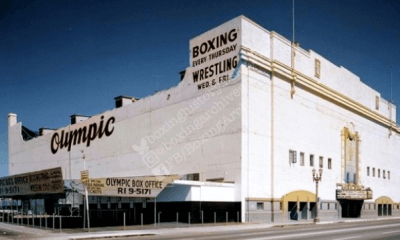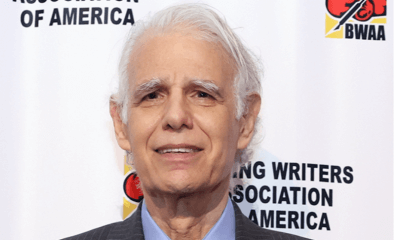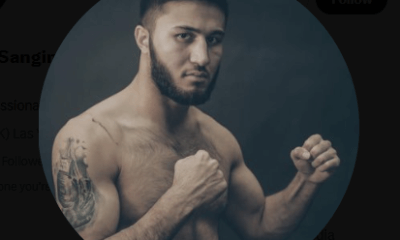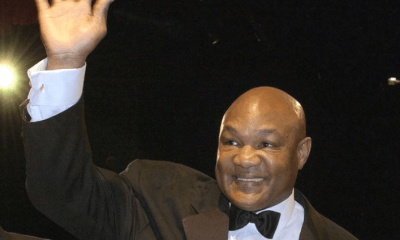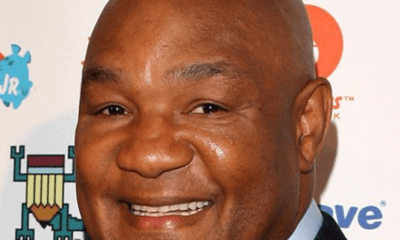Canada and USA
Muhammad Ali Life Lessons: Race Doesn’t Matter
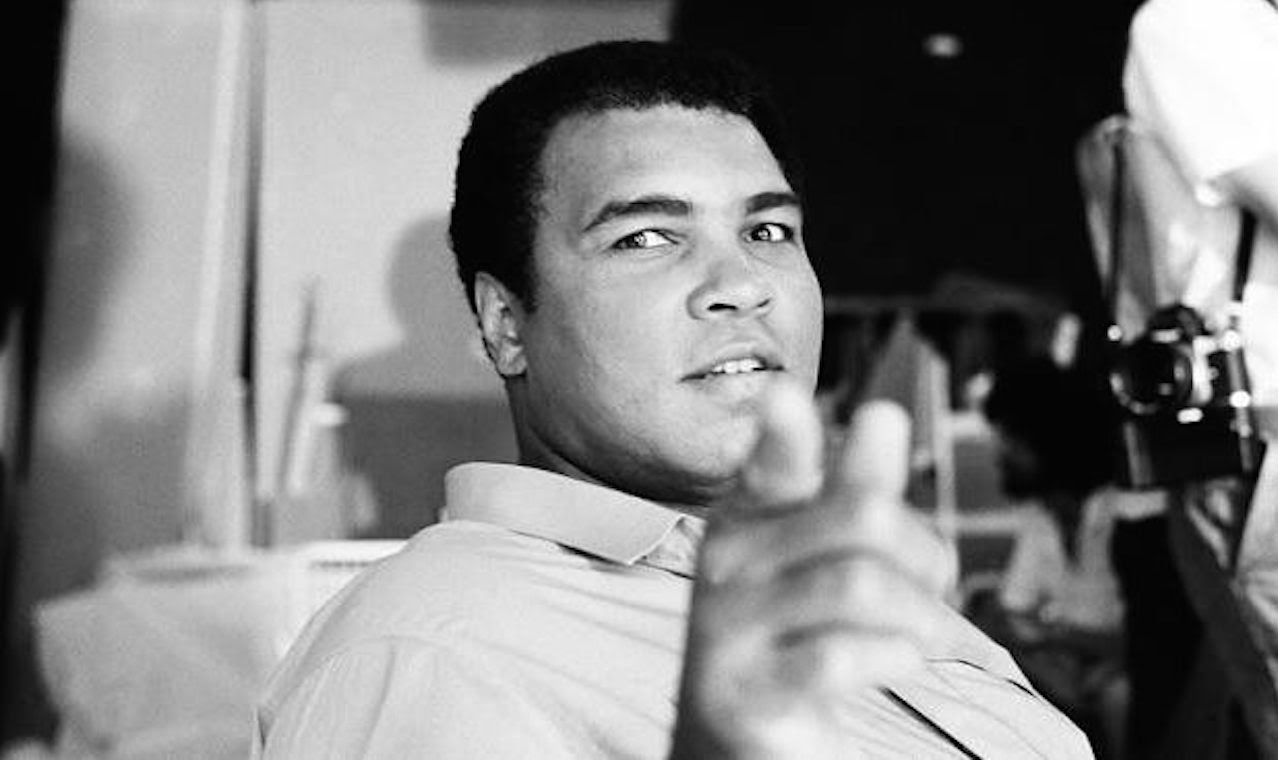
Muhammad Ali Life Lessons – During the 2008 presidential campaign, as a white guy, I had no problem with a black person saying he was voting for Barack Obama because he’s black and he looks like me. To me that sentiment seemed logical because 38 years before Obama, due to Muhammad Ali fighting heavyweight contender Jerry Quarry in his comeback bout, I thought I should be rooting for Quarry because he was white and looked like me.
I grew up in a home in which my grandfather, an Italian immigrant and War veteran, had a big influence on my father who was named Rocky. My grandfather and father noticed race and color and lived in a world in which they felt better about themselves because Rocky Marciano, who was Italian, was the only undefeated heavyweight champion in history. And because Marciano was Italian it was instilled in me that he was the greatest heavyweight in history and surely in his prime would’ve not just defeated Muhammad Ali, but would’ve knocked him out.
My grandfather used to come to our house for dinner three Sundays a month during the late sixties through the mid-seventies. He loved boxing and despised Ali because he considered him a draft dodger and, in all honesty, couldn’t accept that a black man could possibly be the greatest heavyweight in history, a position reserved for Marciano and solidified because Rocky had knocked out Joe Louis. The fact that Louis was a fossil when Marciano knocked him out meant absolutely nothing to my grandfather.
My grandfather was a great man and extended a hand and money to anyone who needed it. However, he couldn’t take a joke, especially if it was at the expense of Joe DiMaggio or Rocky Marciano. Well, it just so happened that I’ve always been a consistent stone breaker and can be pretty good at it. During those late Sunday afternoon spaghetti dinners at my house I used to badger my grandfather and say to him that Marciano was a short meatball that Ali would’ve sliced to ribbons had they fought in their prime.
My grandfather, Frank, couldn’t handle that his third oldest grandson could favor the black draft dodger over the white Italian slugger who never lost. Instead of getting mad at me he’d give my father a hard time and say to him, “what are you teaching this kid?” My father would respond, “Dad, it’s not me. He learns about Muhammad Ali reading all those damn boxing magazines in his room. I guess they’re saying Clay would’ve beat Marciano.” To which my grandfather responded, “Well don’t let the little SOB read them anymore.”
My harassment of my grandfather on Sundays led my father to forewarning me every Sunday morning that I was no longer allowed to tease him about Ali beating Marciano or I would be punished, so I had to stop and I did. However, I must confess that I was conflicted when Ali came back after his exile for draft refusal and was scheduled to fight the “white hope” Jerry Quarry. At that time I did want to see a white heavyweight champion who looked like me because Sonny Liston, Muhammad Ali and Joe Frazier were dominating the division. At that time (I was between 10-13 years old) I was unsure if white fighters were as tough and strong as black fighters. Back then I thought it would be cool if the heavyweight champion looked like me — something that changed on the night of October 26th 1970 when Ali fought Jerry Quarry in his ring return.
During the days leading up to Ali-Quarry, I remember thinking that Ali would beat Quarry and then finally get a chance to fight and beat champion Joe Frazier. Outwardly I believed Ali would beat Frazier, but inside I wasn’t so sure. However, first he had to get past Quarry who was the top ranked contender in the division. I was thrilled about Ali’s return to the ring but inside I actually felt as if I should be rooting for Jerry to beat Muhammad because he was white and I could flex my muscles that the great Muhammad Ali lost to a white guy. But it didn’t work and no matter what I wrongly thought I should feel, my adulation for Ali was stronger and went far beyond race.
My father went to see the fight on closed circuit TV at the Cherry Hill arena in New Jersey. I was in sixth grade at the time and really messing up in school via getting bad grades and fighting with classmates. As a punishment my father went with a guy who worked for him and didn’t take me to see the Ali-Quarry bout. But he promised that he’d call my mother after the fight and tell her who won so she could tell me. That night while waiting for the phone to ring and thinking to myself……if my mother relays to me that Jerry Quarry beat Muhammad Ali, I’ll really be bummed out and sad. On the other hand if she tells me Ali won, I’ll be ecstatic and the world will seem in balance. And it was during those hours waiting to get word whether or not Ali beat Quarry that I realized just how little race or ethnicity mattered. I loved Ali so much that it didn’t make a difference that he didn’t look like me, he was a man before he was anything else and that’s all that mattered and he was my man.
From that point forward I remember watching boxing on TV and if a black fighter was facing a white fighter and I didn’t know anything about who they were, I rooted for the fighter whose style I liked better. Sometimes it was the black fighter and other times it was the white fighter, but race never was an issue. By the time Ali and Quarry fought a rematch in June of 1972, I was firmly rooting for Ali but still liked Quarry a lot. But while I was wholeheartedly invested in Ali winning, I didn’t want to see Quarry get beaten up or embarrassed.
Ten years (almost to the day) after Ali-Quarry II, Larry Holmes fought the new “white hope” Gerry Cooney. By that time I had been boxing for six years and noticing color in people was a long long time ago in a galaxy far far away. Promoter Don King did everything in his power to make it a fight between black and white so he could make more green. Going into the bout I was rooting for Holmes because I thought he paid his dues more as a fighter than had Cooney and I viewed Larry as the more authentic boxer. Interestingly, I got thrown out of the closed circuit showing of the Holmes-Cooney fight at the Coliseum in Voorhees, New Jersey during the 11th round because I had to be pulled off a guy who looked like me who I got into a scrap with because he said something very offensive as I was rooting and cheering loudly for Holmes to win.
It’s important to talk about how, among Ali’s many achievements, he changed people’s hearts. It’s easy for me to admit that I was a kid who identified with white fighters because they represented me (in my mind anyway). When I was a pre-teen part of me felt that a win by Ali over Quarry was a win over me. So my sense of self-worth was very tied into white identification. Ali allowed me to grow (he did this for millions of others too) and realize race and color didn’t matter.
In order to see further than I had seen before, I needed courage. And a lot of that courage came from Muhammad Ali who was the biggest influence of my life.
Muhammad Ali Life Lessons
Frank Lotierzo can be contacted at GlovedFist@Gmail.com
-
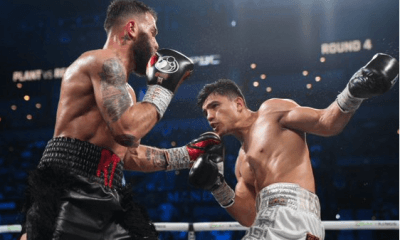
 Featured Articles4 weeks ago
Featured Articles4 weeks agoA Night of Mismatches Turns Topsy-Turvy at Mandalay Bay; Resendiz Shocks Plant
-

 Featured Articles2 weeks ago
Featured Articles2 weeks agoAvila Perspective, Chap. 330: Matchroom in New York plus the Latest on Canelo-Crawford
-

 Featured Articles1 week ago
Featured Articles1 week agoVito Mielnicki Jr Whitewashes Kamil Gardzielik Before the Home Folks in Newark
-
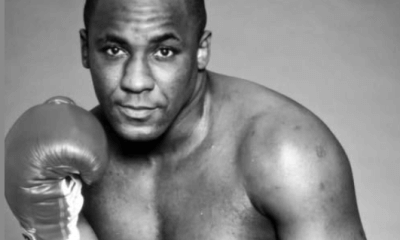
 Featured Articles4 weeks ago
Featured Articles4 weeks agoRemembering the Under-Appreciated “Body Snatcher” Mike McCallum, a Consummate Pro
-

 Featured Articles4 weeks ago
Featured Articles4 weeks agoAvila Perspective, Chap 329: Pacquiao is Back, Fabio in England and More
-

 Featured Articles3 weeks ago
Featured Articles3 weeks agoOpetaia and Nakatani Crush Overmatched Foes, Capping Off a Wild Boxing Weekend
-

 Featured Articles3 weeks ago
Featured Articles3 weeks agoFabio Wardley Comes from Behind to KO Justis Huni
-

 Featured Articles2 weeks ago
Featured Articles2 weeks agoCatching Up with Clay Moyle Who Talks About His Massive Collection of Boxing Books



